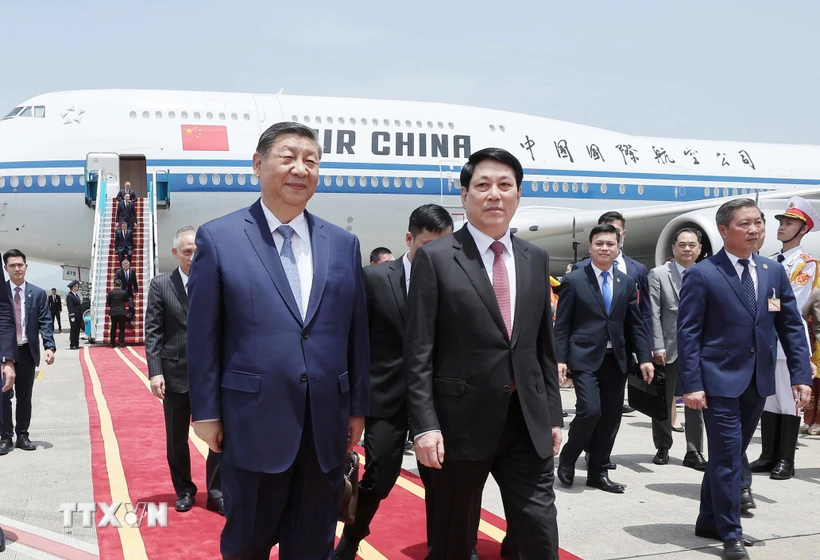HCMC – General Secretary of the Communist Party of China and President of China Xi Jinping arrived in Hanoi today, April 14, marking the start of his two-day state visit to Vietnam at the invitation of Vietnamese Party General Secretary To Lam and President Luong Cuong.
This is Xi’s fourth state visit to Vietnam in his current roles, and the second within the same term, which is a special occurrence that underscores the growing importance of bilateral relations, reported the Vietnam News Agency.
The visit comes ahead of the 75th anniversary of diplomatic ties between the two countries, established on January 18, 1950. It is expected to further deepen the Vietnam–China comprehensive strategic cooperative partnership and reinforce the shared vision of building a “community with a shared future,” a phrase that carries strategic weight in both countries’ foreign policy.
Since the establishment of the comprehensive strategic cooperative partnership in 2008, bilateral ties have grown stronger across political, economic, and security dimensions, particularly in the wake of recent reciprocal visits by top leaders.
Both nations have agreed on a roadmap to strengthen ties through the “six enhancements,” including greater political trust, deeper defense and security cooperation, more substantive economic collaboration, stronger social foundations, closer multilateral coordination, and improved mechanisms to manage differences.
Xi’s visit follows Lam’s trip to China last year and is seen as a pivotal foreign policy event for both sides as they enter a new phase of development. The visit is expected to invigorate bilateral engagement across government agencies, sectors, and communities, fostering a more vibrant and effective cooperative atmosphere.
During the visit, Xi is scheduled to meet with top Vietnamese leaders, including Party General Secretary To Lam, President Luong Cuong, Prime Minister Pham Minh Chinh, and National Assembly Chairman Tran Thanh Man.
Discussions will focus on enhancing political trust, expanding practical cooperation, and implementing high-level agreements in line with the “six enhancements” framework, with the aim of generating tangible results and fresh highlights in the bilateral relationship.









